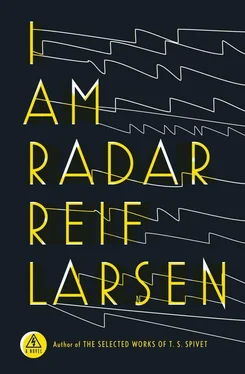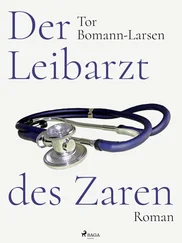“One of these doctors I’m sure will help you get to the bottom of what’s going on here. Truly, in all my years, I’ve never seen anything quite like it.” He paused, looking at them over his spectacles. “But I say this not to worry you.”
That evening, at the suggestion of Dr. Sherman, they left the hospital through a service entrance, so as to avoid any lingering paparazzi. They arrived home to a house that felt like it belonged to a couple of strangers. Everything was familiar but not their own. The curtains were too brown, the forks were too big.
During her first week out of the hospital, Charlene’s olfactive focus gradually transitioned from burnt breakfast cereal to something more sinister. Descriptors proved elusive; the closest she could come to describing the stench was rotten meat that had been heavily grilled and then doused with an astringent lemon-scented cleaner. It was a three-toned miasma that pounded her in waves. She tried to nurse her son but would quickly be consumed by an enduring sensation of rotting flesh. One evening, she left him squirming on the bed as she fled to the bathroom, weeping at her own futility.
“Are you okay?” Kermin said through the door, their child in his arms.
“I can’t,” she said from the other side.
He tried the door.
“Charlene?” he called.
When there was no answer, Kermin clumsily swaddled Radar like a burrito and walked the ten blocks to the A&P, where he bought a case of formula tins. He fed their child in the Shaker rocking chair in the kitchen, the metronome of his son’s suckling beating against the static hush of his transistor radio on the countertop. Now and again a Halifax ham could be heard reading verses from Leaves of Grass to no one in particular.
At some point, Charlene emerged from the bathroom and stood at the threshold of the kitchen. Father and son had fallen asleep in the chair. She observed them as one observes a painting in a museum, as if she might set off an alarm by venturing too close.
One day, she woke up and found the rotten meat smell had parted and given way to the particulars of the world: she could now smell things individually, though these were warped and amplified a hundredfold. Citrus and all of its iterations triggered a special torment; she was tortured by their downstairs neighbors’ heavy hands with the lemon vinaigrette at their weekly family reunions. On one of her first forays into the outside world, she almost passed out on the sidewalk from a single blast of truck fumes. People, too, despite their concoctions of deodorants and perfumes, emitted strong psychological odors, such that she could instantly read a person’s mood with a single sniff. She quickly learned how to brave the world with two wads of cotton surreptitiously stuffed up her nostrils.
Yet what was more maddening than this evolving cast of odors was what had remained the same: Radar’s smell was the one smell that had not changed since those early days of charred cereal. He smelled exactly as he had the moment he was born. Or: her perception of his smell had not changed since the moment he was born. She was not so naive as to think her perceptions provided an objective dictum on the truth.
As the days and weeks went by, she slowly learned to tolerate her intense olfactive repulsion for him. Such repulsion was not acceptable, she knew — this was her child, after all, her own flesh and blood — and so she willed herself to love the repulsion itself. The dizzier she became, the tighter she held him. If this was her curse, then so be it. And yet she also became convinced that if only she could determine what had gone wrong with Radar, then she would also discover the secret to loving him as a mother should. All she needed was a medical diagnosis that could be spoken out loud and everything would be fixed.
They took Radar to each of the pediatric dermatologists that Dr. Sherman had recommended. Charlene expected an answer to come quickly. Surely, science would give them a name for what had happened, some kind of explanation or clinical history. The doctors, however, did not hold up their end of the bargain. They gave the Radmanovics more slips with more references, each of which Charlene diligently pursued. They crisscrossed New York City, visiting a growing list of increasingly suspect specialists who would pluck biopsies from Radar’s squirming thighs or rub on seven-syllabled creams that did nothing but irritate his skin. Nothing worked, nor did these specialists seem to have a clue about what, if anything, was wrong. Each doctor, after some fancy medical footwork, eventually admitted he was at a complete loss for an explanation.
Kermin seemed unfazed — content, even — with the utter lack of answers, but Charlene underwent a slow metamorphosis while she waited in all of those waiting rooms. The process began to consume the purpose. She started to collect medical textbooks; she began subscribing to half a dozen obscure dermatology newsletters and journals; she amassed a detailed, cross-referenced Rolodex of doctors’ names, which she slowly crossed off one by one. With each successive visit, Charlene became more and more determined to find the root cause of her son’s extraordinary condition, though her reasons for doing so were both circular and tautological. Something was wrong with him because no one could figure out what was wrong with him. In an African American family, Radar would be a dark, slight-featured baby with unusually straight hair — nothing more, nothing less. The problem (if one could even call it a problem) arose only when you placed him alongside his biological parents.
When Charlene once sheepishly confessed her own smell condition to Dr. Zeikman, a specialist in Queens who was attempting to treat Radar, he told her it was most likely psychosomatic, that she was simply internalizing the situation with her son. This rebuke so shook her that she could not sleep for three nights straight. Could it actually be that her condition was all in her mind? But surely he could tell there was something wrong with her son? This, she had not made up. This — everyone could see. Right?
She called Dr. Zeikman’s office several days later, under the pretense of complaining about the peroxide formula he had prescribed for Radar. In truth, she wanted to press him on the extent to which he thought her delusional. If it was not her son but she who must be treated, then. . then what on earth should she do?
The phone in the doctor’s office rang and rang until the answering machine clicked on. There was a long pause, and then, in a quavering voice, the secretary announced that Dr. Arnold Zeikman had passed away the night before from a heart attack. All future appointments were canceled.
Charlene stood with the phone in her hand, shocked. She stared at Radar dozing in his bouncy seat. She felt sad for a minute, sad for the briefness of life, sad for Dr. Zeikman’s family. But then this feeling was quickly replaced — she was ashamed to admit — by disapproval. Maybe it didn’t make sense, but she found herself wondering how a doctor of any skill had managed to die of a heart attack. Shouldn’t his alleged expertise on the body’s mechanics shield him from his own mechanics ever breaking down?
She put down the phone and went over to her sleeping son. She let the tips of her fingers brush across his forehead. His skin was warm to the touch. He stirred; his lips trembled.
“Radar, my Radar,” she whispered. “What have I done to you?”
Well, we just think it’s all so crazy,” said Louise. “Don’t we?”
“ Don’t we?” she repeated.
“We do,” said Bertrand. “We don’t think it’s right.”
They were congregated in the Radmanovics’ cramped kitchen in Elizabeth. Charlene’s parents, Louise and Bertrand, now retired, had just returned from an anniversary trip to Cornwall, and they were sipping tea and eating wine gums as Radar sat at their feet, sucking on a pair of headphones. A stack of dermatology textbooks loomed precariously close to the toaster oven.
Читать дальше












